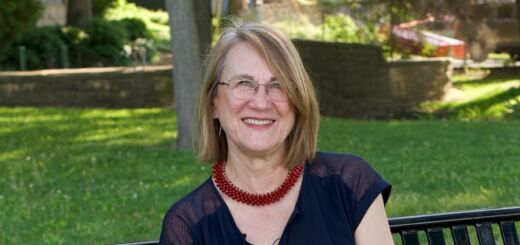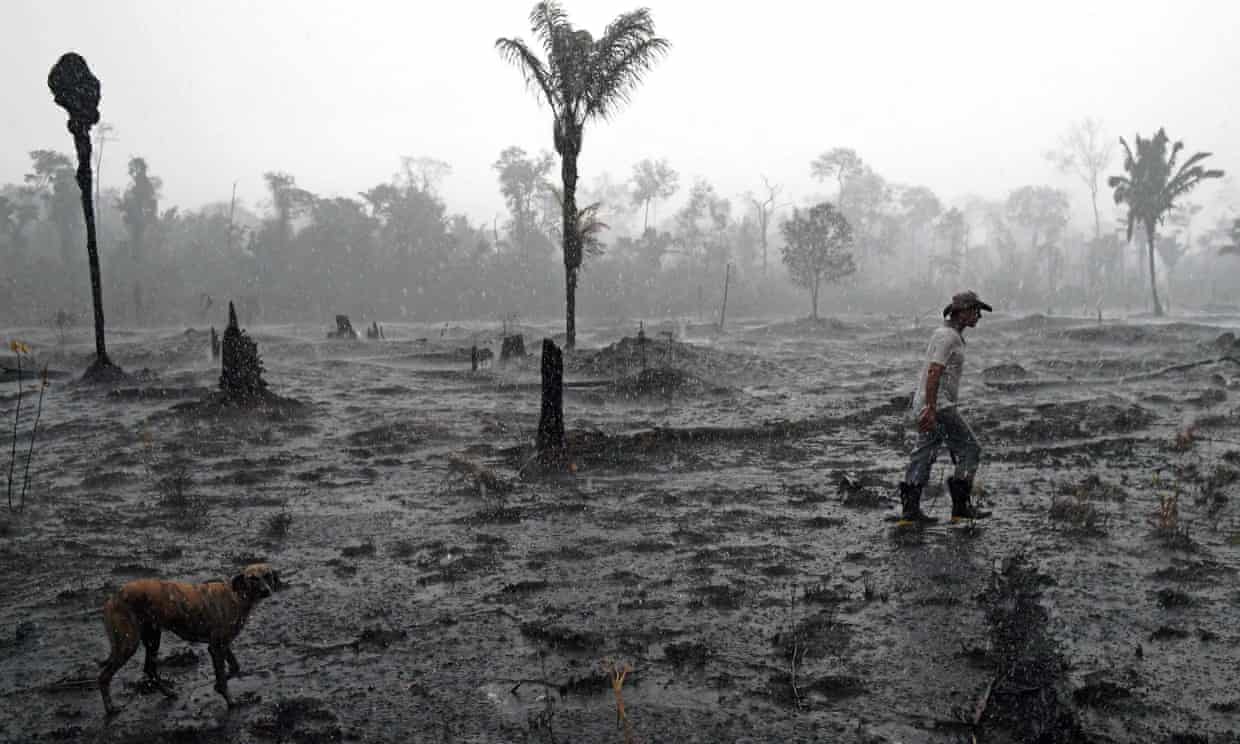Ailton Krenak: Samba to Postpone the End of the World
Brazilian Indigenous leaders' vision honoured in dance and literature
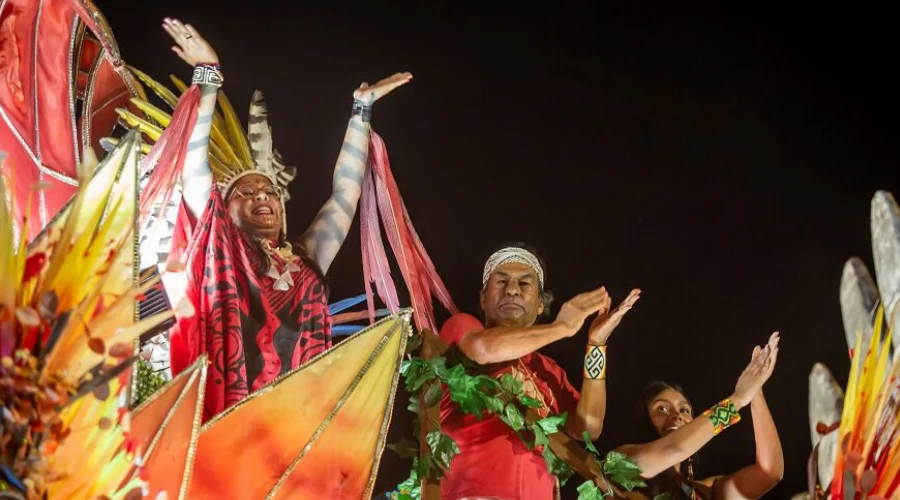
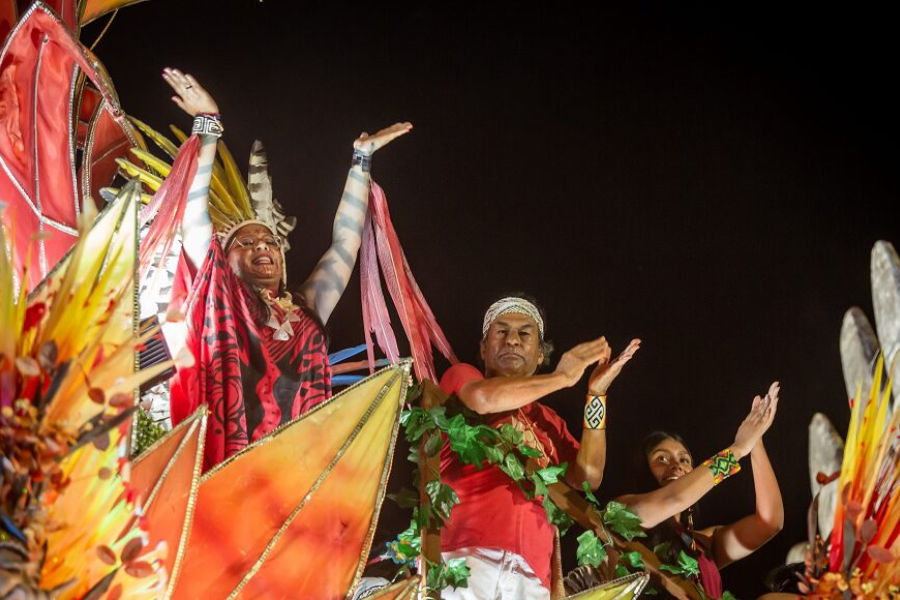
Salgueiro’s samba school’s parade during Carnival. Photo: Lela Beltrão/SUMAÚMA.
On April 5, the Academia Brasileira de Letras (Brazilian Academy of Letters – ABL) will welcome its first Indigenous member in its over 150 years of existence. Ailton Krenak, a highly respected Indigenous leader, environmentalist, philosopher, poet, and writer, will make his mark as a newly inducted member of the Academy. His induction signifies a departure from the literary norms that have excluded Indigenous voices from actively shaping Brazil’s narratives, cultures, and stories. Krenak is poised to challenge these norms, igniting a transformative dialogue within the literary world.
The Indigenous leader’s intellectual prowess has always been a source of inspiration, consistently pushing us to reconsider our preconceived notions, employing Indigenous knowledge in challenging Western paradigms.
Last October, I had the privilege of joining Ailton Krenak at UCLA for a panel discussion regarding my film “Stepping Softly on the Earth” (2022), in which he played a central role. “We are no longer simply facing a complex issue that we call climate change”, Krenak pointed out, “It is more than that. I am here with you today, recognising that one of the most significant causes of environmental damage occurring in this decade stems from armed conflicts. People often focus solely on climate change, but the heart of the matter lies in the possibility that widespread conflict will damage not only the atmosphere, terrestrial ecosystems, and oceans, but also many of our sources of subsistence. Yet this sequence of irresponsible conflicts is often not included in discussions regarding climate damage. I would propose civil liabilities against governments that engage in warfare, holding them accountable for environmental damage and not just for violations of human rights.”
Krenak’s place is assured in the annals of history, independent of his induction into the ABL. There are moments when a singular voice rises above the cacophony, reshaping the narrative of an entire nation. Ailton Krenak, a luminary in the struggle for Indigenous rights in Brazil, is such a voice. Some 37 years ago, Krenak’s impassioned speech during Brazil’s 1987 Constituent Assembly reverberated through the halls of power, heralding a new era for Indigenous peoples across our nation.
As he stood before the assembly, painted in black genipap dye, Krenak’s words carried the weight of generations of Indigenous struggle. “There is Indigenous blood in every hectare of Brazil’s 8 million square kilometers”, he declared, speaking on behalf of a movement that had long been marginalised and silenced.
The Constituent Assembly marked a turning point for Indigenous rights in Brazil. Yet, more than three decades later, the hard-won gains of the past are still under threat by the Marco Temporal (a legal theory aimed at restricting Indigenous claims to land and opening Indigenous territories to extractive industries).
Marco Temporal
The Marco Temporal (time frame), is a legal wheeze, effectively a statute of limitations, designed to dispossess Brazil’s Indigenous peoples of much of their land. It asserts that Indigenous peoples who were not living on land they claim as their own at the time of the promulgation of the Federal Constitution on October 5 1988 have no right to it. The Marco ignores the vast number of reasons why an Indigenous people may not have been living on their land on that date, including the fact that many Indigenous peoples had previously been illegally evicted from land they rightfully occupied, by armed gunmen employed by landowners. It is a devious manoeuvre thought up by the Bancada Ruralista, a group of extremely hard-line landowners and their representatives who dominate Brazil’s Congress.
First introduced in 2007, the Marco Temporal has had a chequered history as the ruralists have tried to push it through Congress and Indigenous people and their supporters have tried to block it. The ruralists finally managed to force the legislation through Congress but then, in a historic judgement, the country’s Supreme Court decided by an overwhelming majority in 2023 that the law was unconstitutional.
Scarcely had the triumphant Indigenous celebrations ended, however, when Congress came back with Bill 2903. Among other changes, this bill threatened to undermine Indigenous rights, for example authorising GM crops on Indigenous lands and permitting roads and railways to cross their territory. It also re-authorises the Marco Temporal. President Lula responded by using his presidential veto to block some of the measures in this bill, including the Marco Temporal, but Congress promptly overturned his veto.
A group of progressive parties turned once again to the Supreme Court to rule on the issue which is once again, as with any ruling against the Marco, vehemently opposed by the Bancada Ruralista. The Court has a lot on its plate, so a verdict is not expected until the second half of 2024 at the earliest. In logic, the Court should repeat its earlier ruling but Brazilians know to their cost that it is easy to underestimate the wiliness of the ruralists.
The Brazilian Academy of Letters
From the founding of the Indigenous Culture Center (Núcleo de Cultura Indígena) in 1985, and his pivotal role in the creation of the Union of Indigenous Peoples (along with Chico Mendes), Krenak has been a tireless advocate for Indigenous rights and autonomy. His activism has not only reshaped the landscape of Indigenous politics in Brazil but has also inspired countless non-indigenous people and groups to join the fight for justice and equality.
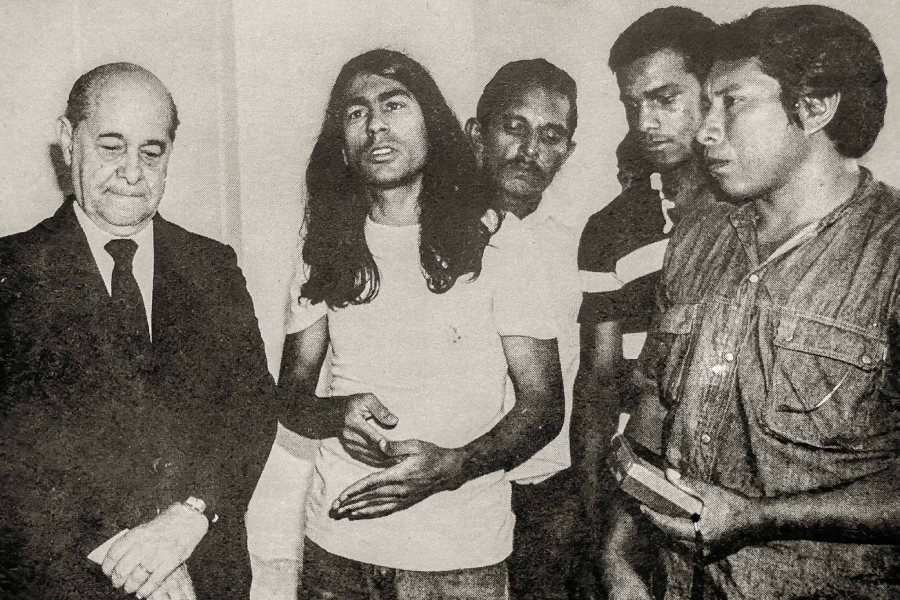
Members of the Union of Indigenous Nations (União das Nações Indígenas – UNI), Ailton Krenak from São Paulo, José Apolônio dos Santos of the Xokó ethnicity from Sergipe, and Biraci Brasil, representing the Yawanawá people from Acre, handed over the final document of the seminar ‘Indigenous Peoples and the State’ to the then candidate Tancredo Neves (Brasília, 11/28/84). Photo: Marcos Colón archive.
His recognition as an intellectual figure gained momentum with the publication of his acclaimed book “Ideias para adiar o fim do mundo” (“Ideas to Postpone the End of the World”) in 2019, followed by subsequent works such as “A vida não é útil” (“Life is Not Useful”) in 2021, and “Futuro Ancestral” (“Ancestral Future”) in 2022. Through his accessible writings, Krenak has popularized Indigenous cosmologies and perspectives, amplifying Indigenous voices both nationally and globally.
In a remarkable demonstration of support for Indigenous resistance and the ongoing struggle of Indigenous peoples in Brazil, Krenak secured a seat at the Brazilian Academy of Letters (ABL) and, later, at the Minas Gerais State Academy of Letters. His election is hailed as a significant milestone in Indigenous representation and an “historic reparation” to Indigenous communities. As the first Indigenous person to occupy a seat in the ABL in more than 150 years of existence, Krenak will now be able to make his voice echo through the hallowed halls of literature and academia, ensuring that Indigenous perspectives are not only heard but celebrated.
Krenak offers up a powerful vision of a world where “we have to abandon our anthropocentrism. There’s a lot more to Earth than us and biodiversity doesn’t seem to miss us at all. Quite the contrary”. He adds that, “tomorrow is not for sale.” For Krenak, we are on this planet to “dance life.” His work serves as a reminder that Indigenous knowledge and wisdom hold the key to our collective survival in an increasingly uncertain world.
Samba Tales
Amid the ongoing illegal mining taking place in Yanomami territory, Krenak joined forces with Yanomami Chief Davi Kopenawa and other Indigenous leaders to draw attention to the atrocities faced by the Yanomami people. Recently, over 300 have children died due to malnutrition and lack of assistance from the previous Bolsonaro government. The Yanomami participated in the Salgueiro’s samba school’s tribute to them during Carnival, reclaiming the school’s internationally televised parade as a form of protest.
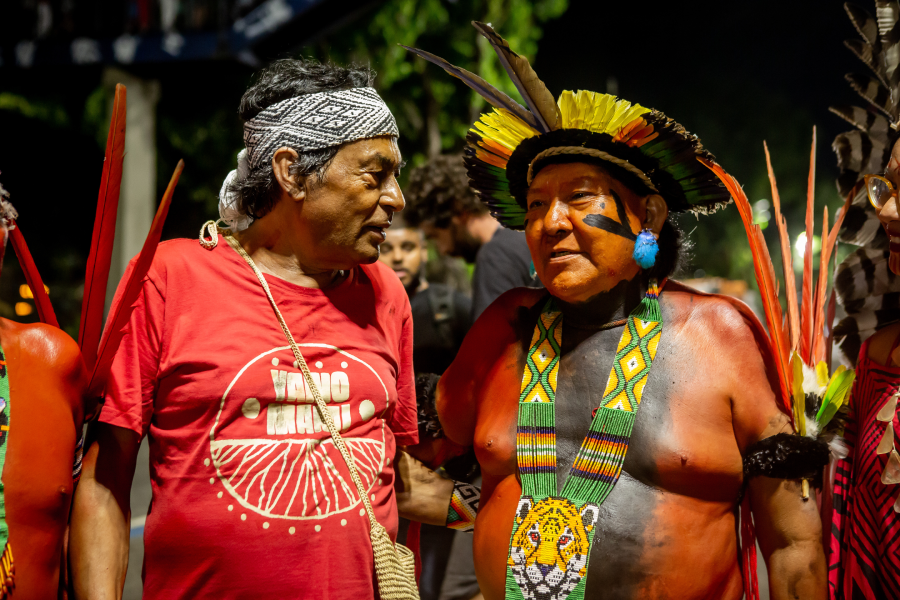
Ailton Krenak, left, with Davi Kopenawa Yanomami. Photo: Lela Beltrão/SUMAÚMA.
During the parade, Krenak emphasised the importance of using Carnival to raise awareness for the Indigenous cause. He expressed his admiration for the school’s efforts, highlighting the significance of the Indigenous presence at the event. Even amidst revelry such as samba dancing, he believes there should exist a greater purpose — to postpone the imminent challenges facing our world. “We are all here to conquer hearts and minds for our cause. It is marvellous to see the Yanomami mythology and vision of the world being translated into a samba”, Krenak told Al Jazeera during the parade, where he accompanied Yanomami leader Davi Kopenawa. “Many Yanomamis who are participating in the parade cannot even speak Portuguese. Yet they’re singing the lyrics of a samba written in their name and telling the world they still exist — and will resist.”
As we teeter on the brink of the greatest environmental crisis in recorded human history, Ailton Krenak reminds us that hope still exists and that we can postpone the end of our world. It is incumbent upon us to utilise every available avenue to rewrite narratives so that they not only express resistance but, above all, re-existence. Krenak asserts that by reshaping and expanding the boundaries of storytelling surrounding our relationship with the natural world, we can delay the impending catastrophe and construct a more equitable and sustainable future for all.
Davi Kopenawa, a Yanomami leader and shaman, echoed this sentiment, describing the Yanomami nation’s plea for help as a call to action for both Brazil and the world at large. He expressed hope that global pressure would compel the Brazilian government to expel the miners on Yanomami lands: “My hope is that the world, upon hearing our call, will put pressure on the Brazilian government to remove all the miners, destroyers of our mother Earth, who are soiling the water and killing fish”, said Davi Kopenawa.
At the conclusion of our meeting at UCLA, Krenak reminded us that “crises, for us [Indigenous peoples], are not the exception. For us, crises are products of the unequal relationship that we have to face every hour of every day. Some years ago, I said that I didn’t know how the Brazilians, in general, would endure an anti-social, predatory government, but that the Indigenous peoples know how, because we always face this type of abuse of our freedoms. I realise that many people are now feeling attacked, but we have always been attacked. This pushes us to not give up any of our choices. Our choices are many. They involve having the forest, having the river, having quality air to breathe, food to eat. This is a simple perspective, so to speak, which does not involve any apparatus. We don’t need another currency. We don’t need the bullshit promoted by the people who think that it is necessary to have a currency, to have economic power, to have guns. This is all useless.”
If, for a while, it was Indigenous peoples who were threatened with the rupture or extinction of the meaning of their lives, today all of us are on the verge. Earth cannot support our demands. It is up to each and every one of us to heed Krenak’s call and take action before it is too late.
Click here to access the article published in the Latin America Bureau (LAB).
Marcos Colón is an Assistant Professor in the International Affairs Program at Florida State University. He is the director, writer and producer of “Beyond Fordlândia: An Environmental Account of Henry Ford’s Adventure in the Amazon” (2018) and “Stepping Softly on the Earth” (2022). His forthcoming book, “The Amazon in Times of War”, is set to be released in the summer of 2024.
Produção e Direção: Marcos Colón
Revisão: Isabella Galante


